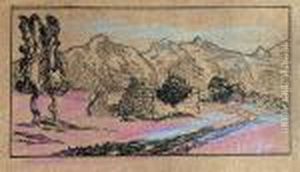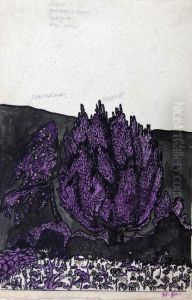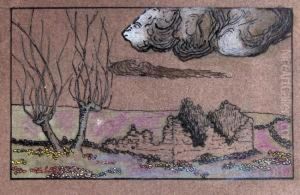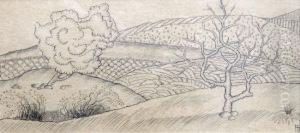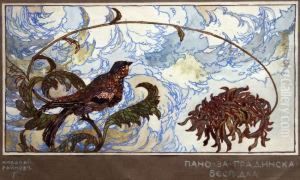Nikolai Rainov Paintings
Nikolai Rainov was a Bulgarian artist, writer, and illustrator, known for his contributions to the development of Bulgarian art in the first half of the 20th century. Born on December 13, 1889, in Tarnovo, Bulgaria, Rainov was part of a period in Bulgarian history that saw significant cultural and artistic growth. He initially studied law in Sofia but soon devoted himself to art, moving to Munich to study at the prestigious Academy of Fine Arts.
In Munich, Rainov was influenced by the European avant-garde movements of the time, which is reflected in his early work. However, he gradually developed his own distinctive style that blended elements of Bulgarian folklore, Orthodox iconography, and modernist trends. His paintings often feature themes of national history and rural life, and he is noted for his ability to evoke the spiritual and mystical aspects of Bulgarian culture.
After returning to Bulgaria, Rainov became an active participant in the country's artistic life. He worked not only as a painter but also as a graphic artist, illustrator, and stage designer. His illustrations for literary works are particularly notable for their expressiveness and for bringing the texts to life. He also engaged in writing, producing a number of essays on art theory as well as fiction, which further showcased his deep connection to Bulgarian cultural identity.
During the interwar period, Rainov was a member of several art societies and participated in numerous exhibitions, becoming a prominent figure in Bulgarian art circles. His work was recognized with awards and honors, and he was considered a key figure in the country's national artistic heritage.
Nikolai Rainov passed away on May 21, 1954, in Sofia, leaving behind a legacy that continues to influence Bulgarian artists. His work is preserved in various museums and galleries in Bulgaria and has been the subject of posthumous exhibitions. Rainov's contributions to art and literature have made him a significant cultural figure in Bulgaria’s history.
